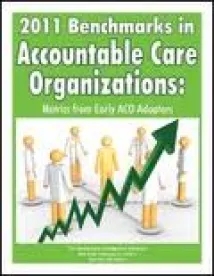The IRS recently released a ruling, Private Letter Ruling (“PLR”) 201615022, denying Section 501(c)(3) tax-exempt status to a “commercial” accountable care organization (“ACO”). This is the IRS’ first published guidance regarding a commercial ACO, and the most recent guidance from the IRS regarding the tax-exempt status of ACOs since 2011 when the IRS established that an ACO participating in the Medicare Shared Savings Program (“MSSP”) can qualify for Section 501(c)(3) status.
In this ruling, the IRS concluded that a commercial ACO, despite its aims of improving the quality of healthcare, reducing costs and increasing patient satisfaction for the patient populations served by the ACO’s providers, did not qualify for Section 501(c)(3) status. The basis for this conclusion was the IRS’ reasoning that the ACO did not exclusively promote the health of the community as a whole, but rather primarily benefitted the ACO’s network physicians, approximately half of whom were not employed within the nonprofit health system that founded the ACO, by virtue of negotiating commercial payor contracts on their behalf. This ruling is significant for:
-
demonstrating the challenges that an ACO will face in qualifying for Section 501(c)(3) status if it does not participate exclusively in the MSSP or a Medicaid or other similar governmental program; and
-
the potential implications for Section 501(c)(3) organizations that currently participate in non-MSSP and non-Medicaid ACOs through LLCs or partnerships.
Background
The ACO in PLR 201615022 was formed by a nonprofit health system formed to accomplish the “triple aim” of health reform under the Patient Protection and Affordable Care Act (“PPACA”) – reducing costs, improving patient access to and the quality of healthcare, and improving population health and patient experience (the “Triple Aim”). PPACA promoted ACOs as a vehicle to integrate, coordinate and promote efficiency, quality and accountability among hospitals, physicians and other healthcare providers in their delivery of healthcare.
Congress established the MSSP as part of PPACA, to incentivize healthcare providers to achieve the Triple Aim by allowing providers to share in the cost savings that an ACO generates for the Medicare program. In 2011 (in Notice 2011-20 and Fact Sheet 2011-11), the IRS established that ACOs participating in the MSSP can qualify for Section 501(c)(3) status.
PLR 201615022
The ACO in this ruling did not participate in the MSSP, but its activities were nonetheless directed towards achieving PPACA’s Triple Aim. The ACO established a clinically integrated network of healthcare providers, and, importantly, approximately half of the participating physicians were: (i) from independent practice groups, although on the medical staff of the sponsoring healthcare system’s facilities; or (ii) practicing at hospitals that were not affiliated with the sponsoring health system. The ACO established IT infrastructure to collect and analyze data from its network providers, to generate information and insights that would create efficiencies, promote accountability, improve quality and reduce costs in the provider network. The ACO also negotiated with commercial payors on behalf of the network providers, and the contracts included financial incentives for the providers to reduce costs and improve care.
The IRS denied Section 501(c)(3) status on the basis that the ACO did not demonstrate that it was organized “exclusively” for Section 501(c)(3) charitable purposes based on the IRS’s view that the ACO did not exclusively benefit the community as a whole and instead primarily benefitted the ACO’s physicians, approximately half of whom were not employed within the sponsoring health system. Although the ACO sought to promote health and reduce healthcare costs, the IRS cited well-established principles providing that: (i) not all activities that promote the health of the general public qualify as charitable under Section 501(c)(3); and (ii) negotiating with private health insurers on behalf of unrelated healthcare providers is not a charitable activity under Section 501(c)(3). The IRS noted that although the ACO’s electronic health records activities may further Section 501(c)(3) charitable purposes, those activities were not sufficient to overcome the private benefit to the network physicians of negotiating commercial payor contracts on their behalf.
Operating outside of the MSSP, the ACO could not rely on the IRS’ prior guidance that ACOs participating in the MSSP further the Section 501(c)(3) purpose of lessening the burdens of government.
Key Take-Aways and Action Steps:
Potential implications for Section 501(c)(3) organizations in existing ACOs that are wholly or partly commercial. The implications of PLR 201615022 should be considered by Section 501(c)(3) organizations that participate in non-MSSP and non-Medicaid ACOs through LLCs or partnerships that are treated as flow-through entities for income tax purposes – i.e., where the activities of the entity are attributed proportionately to its members or partners. Based on the IRS’s position in PLR 201615022, it seems likely that the ACO’s non-MSSP or non-Medicaid activities would be deemed to be an “unrelated trade or business,” rather than an activity that furthers Section 501(c)(3) charitable healthcare purposes, and the potential consequences could include:
-
The Section 501(c)(3) member’s income from such activities could potentially be subject to the Unrelated Business Income Tax.
-
If the Section 501(c)(3) member has facilities that are financed with tax-exempt bond proceeds and are used in connection with the ACO’s operations, private business use could potentially result.
Importantly, there are steps that can be taken to avoid or reduce such risks.
This ruling does not definitively preclude an ACO outside of the MSSP from qualifying for Section 501(c)(3) status. Arguably, a non-MSSP ACO could potentially qualify for Section 501(c)(3) status by sufficiently distinguishing itself from the ACO in PLR 201615022 through presenting more compelling factors that demonstrate that the ACO primarily benefits the public as a whole and that any benefits to private physicians are insubstantial and merely “incidental” to such public benefits. Such factors could potentially include:
-
permitting only employed or medical staff physicians in the ACO’s clinical network,
-
serving only Medicare, Medicaid, and/or low-income or disadvantaged populations,
-
receiving government grants,
-
demonstrating other ways in which the ACO materially benefits the general public – perhaps through publication of data and insights gleaned by the ACO from its clinically integrated network, publicly sharing the ACO’s innovative healthcare strategies or technology, expanding the charity care provided by the network physicians, or conducting significant community or medical education efforts.
However, based on this ruling, a commercial ACO would face significant challenges in obtaining Section 501(c)(3) status.




 />i
/>i

